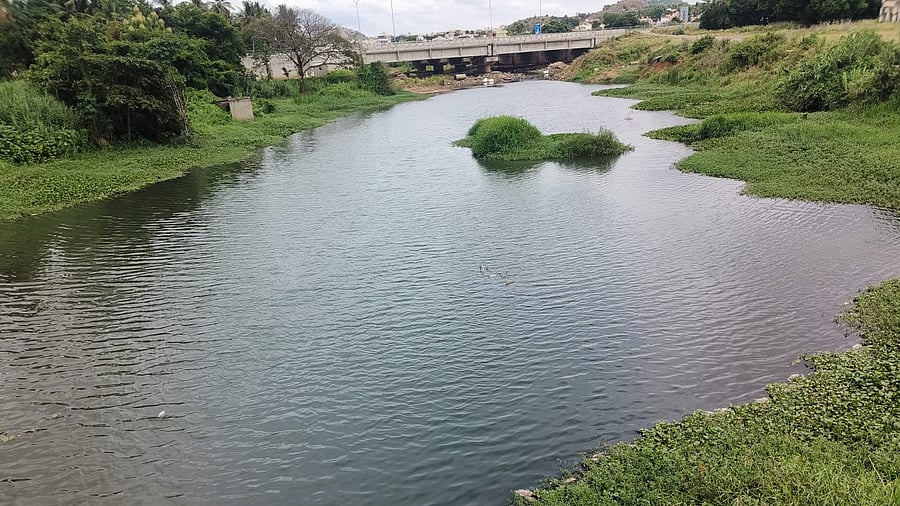
Tests conducted by the Paani Earth Foundation on water and sediment samples from various stretches of the Arkavathy revealed high levels of mercury, the banned pesticide DDT, and carcinogenic polycyclic aromatic hydrocarbons (PAHs).
DH FILE PHOTO
Bengaluru: A city-based NGO that exposed the presence of cancer-causing chemicals and mercury in River Arkavathy has flagged glaring gaps in the National Water Quality Management Programme (NWMP), citing them as one of the reasons such contamination continues to go undetected.
The National Green Tribunal (Southern Zone) had taken suo motu cognisance of a Deccan Herald report on Paani Earth Foundation’s initiative.
The NGO's tests on water and sediment samples from various stretches of the Arkavathy revealed high levels of mercury, the banned pesticide DDT, and carcinogenic polycyclic aromatic hydrocarbons (PAHs).
In an interlocutory application filed before the tribunal, the foundation stated that it had approached the Central Pollution Control Board (CPCB) to flag the "alarming" levels of pollutants.
In a letter to the CPCB in January, the foundation stressed the need to expand the parameters monitored under the NWMP to include contaminants such as PAHs, DDT, other pesticides, and phthalates.
Lack of public access
The foundation also pointed to the lack of public access to comprehensive monitoring data.
While the Karnataka State Pollution Control Board (KSPCB) records obtained through the Right to Information (RTI) Act indicate that there are 80 water quality monitoring stations in the Arkavathy river basin, data was available for only 42 of them. The CPCB, however, claimed that only 40 stations exist.
Apart from these discrepancies, the NGO highlighted that the NWMP data on the CPCB portal only reports the yearly minimum and maximum values. These figures fail to reflect seasonal variations, pollution spikes, or real-time pollution trends in the river.
"The representation contained numerous recommendations to strengthen the NWMP and included a request for an audit of existing monitoring stations under the programme," the application stated. It added that the same concerns were raised with other stakeholder agencies such as the KSPCB and the Bengaluru Water Supply and Sewerage Board (BWSSB).
Among the key recommendations were including accurate GPS coordinates in NWMP reports, ensuring public access to all water quality analysis reports, and uploading complete monthly reports — including all monitored parameters — to help citizens understand pollution trends and spikes.
The tribunal directed the foundation to serve its submission to the respondents. At the latest hearing, the KSPCB sought additional time to file its response to the application.